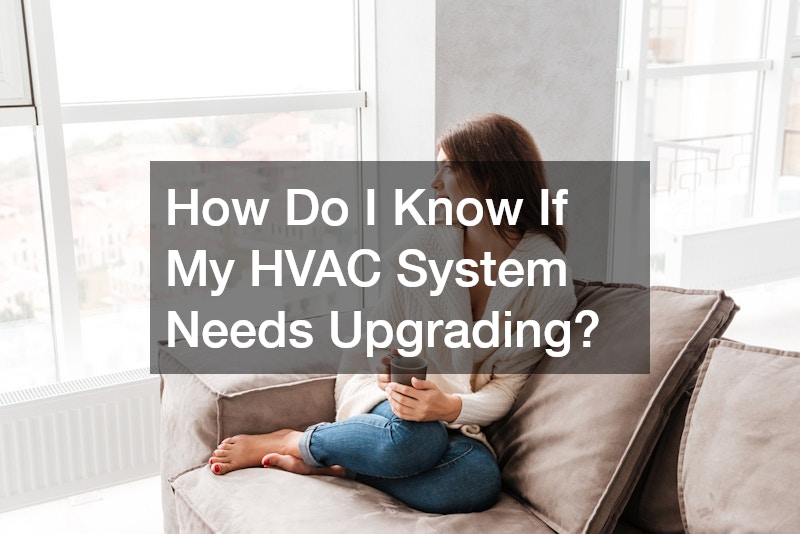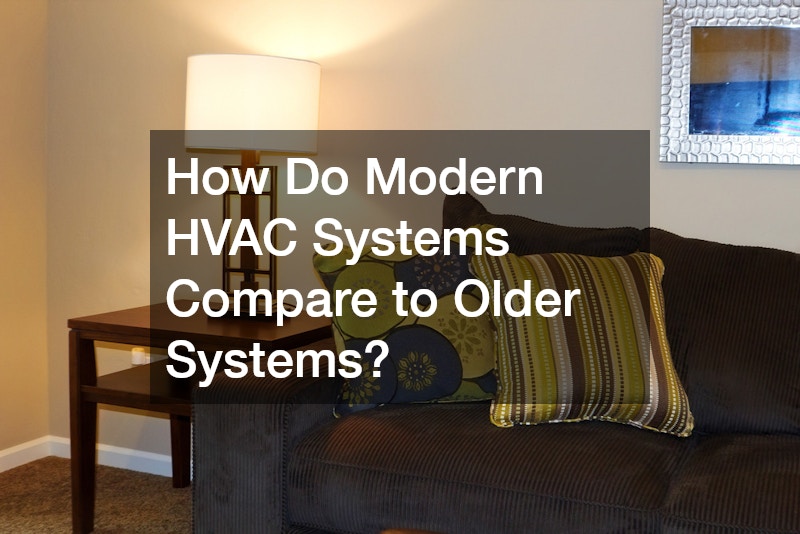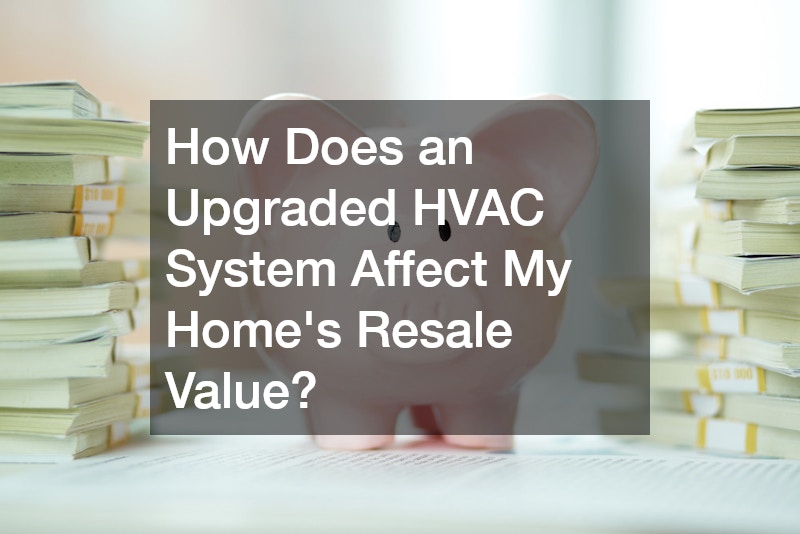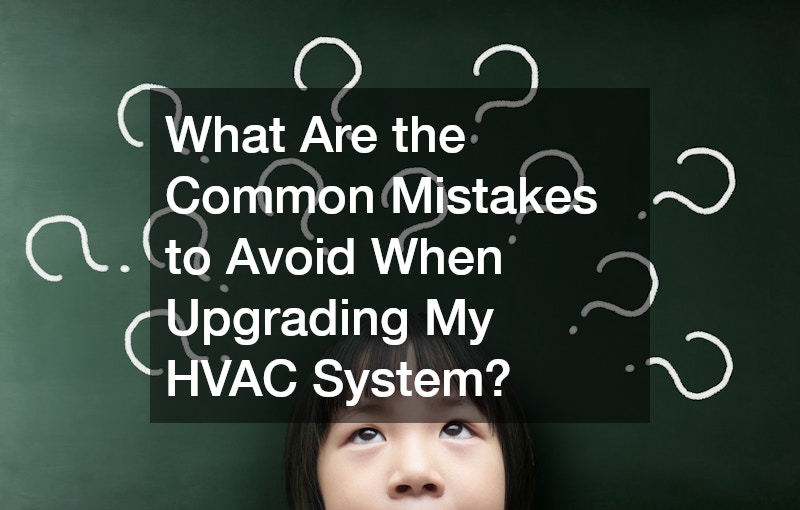Should I Upgrade My HVAC System?
Introduction
The importance of maintaining an efficient HVAC system is undeniable. HVAC (Heating, Ventilation, and Air Conditioning) systems are central to maintaining a comfortable living environment in your home, ensuring that both heating and cooling needs are met throughout the year. However, as technology continues to advance, many homeowners face the dilemma of whether they should upgrade their existing HVAC systems. The decision to upgrade your system is significant, often involving substantial costs and considerable time investment. This article explores key considerations to help guide you through the decision-making process, ensuring that you make an informed choice based on your unique needs.
How Do I Know If My HVAC System Needs Upgrading?

Recognizing when it’s time to upgrade your HVAC system can be challenging. However, there are several indicators that suggest an upgrade might be necessary.
Signs of Decreased Efficiency
One of the first signs that your HVAC system may need an upgrade is a noticeable decrease in efficiency. If your system is no longer cooling or heating your home evenly, it may be struggling to keep up with the demands placed on it. This could result in uneven temperatures in different rooms, making your living space uncomfortable. Regular maintenance through HVAC service can help, but if issues persist, it might be time for an upgrade.
Age of the Current System
The age of your HVAC system is another crucial factor. Most systems have a lifespan of about 15-20 years. If your system is approaching or surpassing this age, it may be more cost-effective to upgrade to a new, more energy-efficient model rather than continuing to pay for costly repairs. Consider consulting with HVAC contractors or a local electrician to assess the best course of action.
Rising Energy Bills
If you’ve noticed a steady increase in your energy bills despite using your HVAC system in the same manner as before, it could be a sign that the system is becoming less efficient. Older systems often have to work harder to achieve the same results, leading to higher energy consumption. An upgrade could help reduce energy consumption and lower utility costs in the long run.
Frequent Repairs Needed
If you find yourself calling a local plumber, HVAC service technician, or furnace installers regularly for repairs, it may be more economical to invest in a new system. Frequent repairs can add up quickly, and older systems often become prone to breakdowns, especially if parts are no longer available. Upgrading to a more reliable system can reduce these ongoing costs.
Inconsistent Temperature Regulation
An HVAC system that can no longer regulate the temperature evenly throughout your home may not be working at peak efficiency. If certain rooms are too hot or too cold, it could indicate an issue with the system that upgrading could resolve. In addition, check for issues in your heating and cooling system, which may be affecting overall temperature regulation.
What Are the Benefits of Upgrading My HVAC System?
Upgrading your HVAC system offers a range of benefits that can improve your home’s comfort and efficiency.
Improved Energy Efficiency
One of the primary advantages of upgrading your HVAC system is improved energy efficiency. Newer systems are designed to consume less energy, helping to reduce both your carbon footprint and your utility bills. This is particularly important in areas with extreme weather conditions, where heating and cooling needs can significantly impact energy use.
Enhanced Indoor Air Quality
A new HVAC system can also improve your home’s indoor air quality. Modern systems feature advanced filtration systems that can remove allergens, dust, and other airborne contaminants. This is especially beneficial for those with respiratory issues or allergies.
Increased Home Comfort
Upgrading to a more advanced HVAC system can provide better overall comfort. Newer systems offer features like variable-speed blowers and enhanced temperature control, which can maintain more consistent and comfortable conditions in your home. Additionally, the integration of tankless water heaters can provide instant hot water, enhancing comfort and convenience in your daily routines.
Reduced Environmental Impact
Upgraded systems often feature eco-friendly refrigerants and more efficient energy use, reducing your home’s overall environmental impact. This is a step towards a more sustainable lifestyle. Many modern HVAC systems are designed to minimize reliance on heating oil, using alternative energy sources that reduce greenhouse gas emissions.
Financial Savings on Energy Bills
Although the initial investment in upgrading your HVAC system can be significant, the long-term savings on energy bills can make it worthwhile. Over time, the improved efficiency of a new system will offset the initial cost, leading to substantial savings. Additionally, ac maintenance services can help extend the lifespan of the system and keep it running at its best for years.
How Do Modern HVAC Systems Compare to Older Systems?

The gap between modern HVAC systems and older ones is vast. Technological advancements have resulted in HVAC systems that are not only more efficient but also smarter and quieter.
Technological Advancements
Modern HVAC systems integrate cutting-edge technology such as smart thermostats, advanced filtration systems, and improved sensors that enhance performance and ease of use. These systems are designed to adapt to your schedule and optimize energy consumption. Many systems are also compatible with tankless water heaters, ensuring efficient water heating alongside heating and cooling needs.
Energy Efficiency Metrics
New HVAC systems are typically more energy-efficient than older models. They adhere to strict energy efficiency standards and use innovative technology to minimize energy consumption while still providing optimal performance.
Longevity and Durability
Upgraded HVAC systems are designed to last longer and perform better over time. With regular maintenance, new systems often have a lifespan of 20 years or more, far exceeding the typical lifespan of older systems.
Smart Thermostat Compatibility
New systems are often compatible with smart thermostats, allowing you to control your HVAC system remotely. This feature enables you to optimize energy use and enhance convenience, adjusting your home’s temperature from anywhere.
Noise Levels and Operation
Modern HVAC systems operate more quietly than older units. Noise reduction technology ensures that your system runs smoothly without disturbing your daily activities.
What Are the Costs Involved in Upgrading My HVAC System?
Upgrading your HVAC system involves several costs, including the initial investment, installation, and future maintenance.
Initial Investment vs. Long-term Savings
While the initial cost of upgrading your HVAC system can be high, it’s important to consider the long-term savings. A more energy-efficient system can significantly lower your monthly utility bills, making the investment worthwhile in the long run.
Installation Labor Costs
Installation labor costs can vary depending on the complexity of the upgrade. It’s essential to hire experienced HVAC contractors who can ensure that the system is installed correctly and efficiently. A local plumber may also be needed if any plumbing modifications are required, especially when upgrading to a tankless water heater. local electrical services will be a requirement in order to make sure the wiring for your new HVAC system is done safely and properly.
Maintenance and Repair Expenses
Newer HVAC systems typically require less maintenance than older ones. However, regular maintenance such as changing filters, checking refrigerants, and inspecting the ducts will ensure that your system runs efficiently for years. Ensure that you schedule regular ac maintenance services to keep the system functioning optimally.
Possible Government Rebates and Incentives
Many governments offer rebates and incentives for homeowners who upgrade to energy-efficient systems. These programs can help offset some of the costs of upgrading your HVAC system, making the investment more affordable.
Financing Options and Plans
If the upfront cost of upgrading your HVAC system is a concern, many HVAC contractors offer financing options. These plans allow you to pay for your new system over time, making the investment more manageable.
How to Choose the Right HVAC System for My Needs?
Choosing the right HVAC system for your home requires careful consideration of various factors, from home size to energy efficiency ratings.
Assessing Home Size and Layout
The size and layout of your home play a significant role in determining the right HVAC system. A local plumber, HVAC service technician, or electrician can help assess your home’s heating and cooling needs and recommend a system that will provide optimal performance.
Understanding Different Types of HVAC Systems
There are different types of HVAC systems to consider, including central heating and cooling systems, ductless systems, and heat pumps. Consulting with an experienced HVAC contractor will help you select the system that best suits your home.
Evaluating Energy Efficiency Ratings
When upgrading your HVAC system, it’s crucial to evaluate energy efficiency ratings, such as the SEER (Seasonal Energy Efficiency Ratio) and HSPF (Heating Seasonal Performance Factor). Higher ratings indicate more efficient systems that will save you money in the long run.
Considering Climate and Geographic Location
Your climate and location should influence your choice of HVAC system. Homes in colder regions may require more robust heating solutions, while homes in warmer areas may need more advanced cooling systems.
Consulting with HVAC Professionals
Consulting with
HVAC contractors
is key to selecting the right system for your home. They can assess your needs and recommend a system that will provide optimal efficiency and performance.
How Long Does the Installation of a New HVAC System Take?
The installation of a new HVAC system involves several steps, from initial assessment to final testing.
Pre-Installation Assessment
A thorough pre-installation assessment is necessary to determine your home’s HVAC needs. During this stage, professionals evaluate the layout, insulation, and other factors that could impact system performance.
Typical Installation Timeline
The typical installation timeline for an HVAC system is 1-3 days, depending on the complexity of the system and the size of your home.
Factors Affecting Installation Duration
Factors such as the need for additional ductwork, electrical work, or plumbing modifications can extend the installation timeline. A local electrician or local plumber may be required if upgrades to wiring or plumbing are needed.
Post-Installation Testing and Inspection
Once the system is installed,
HVAC contractors
conduct post-installation testing and inspections to ensure the system operates correctly and efficiently.
Handling Unexpected Delays
While unexpected delays can occur, a reputable
HVAC contractor
will communicate clearly and work to minimize any disruptions to your schedule.
What Maintenance Is Required After Upgrading My HVAC System?
After upgrading your HVAC system, regular maintenance is necessary to keep it operating efficiently.
Regular Filter Replacement
Changing air filters regularly is essential to maintaining good air quality and ensuring your HVAC system runs efficiently.
Seasonal System Check-ups
Scheduling seasonal check-ups with
HVAC professionals
helps identify potential issues before they become major problems. These check-ups often include cleaning, inspecting, and servicing the system.
Cleaning Ducts and Vents
Cleaning ducts and vents helps maintain good airflow and air quality. Regular cleaning prevents dust and debris from accumulating in your system.
Monitoring System Performance
Monitoring your system’s performance can help detect inefficiencies or issues early on. Keep track of your system’s behavior and call professionals if you notice any irregularities.
Professional Annual Inspections
Having a professional
HVAC service technician
perform annual inspections ensures that your system stays in top shape and can extend its lifespan.
How Does an Upgraded HVAC System Affect My Home’s Resale Value?

Upgrading your HVAC system can positively impact your home’s resale value.
Attracting Potential Buyers
A modern, energy-efficient HVAC system is an attractive feature for potential buyers, as it promises reduced utility costs and improved comfort.
Highlighting Energy Efficiency Features
Energy-efficient features, such as a high-SEER rating, can make your home stand out in a competitive market, attracting eco-conscious buyers.
Impact on Home Appraisal
A newer HVAC system can increase your home’s appraisal value, potentially leading to a higher sale price.
Marketing a Modern HVAC System
When marketing your home, highlighting a modern HVAC system can be a selling point. It signals that the home is well-maintained and ready for a new owner.
Long-term Financial Implications
Upgrading your HVAC system can provide long-term financial benefits through reduced energy bills and increased property value.
Are There Environmental Benefits to Upgrading My HVAC System?
Upgrading your HVAC system offers environmental benefits that contribute to sustainability.
Reduced Carbon Footprint
New HVAC systems are more efficient, consuming less energy and reducing your carbon footprint.
Lower Energy Consumption
Efficient systems use less energy to heat and cool your home, contributing to a greener planet.
Use of Eco-friendly Refrigerants
Modern HVAC systems use eco-friendly refrigerants that have less environmental impact than older refrigerants.
Contribution to Sustainable Living
Upgrading to a more efficient system supports sustainable living by reducing energy consumption and reliance on fossil fuels.
Compliance with Environmental Regulations
Newer HVAC systems are designed to comply with stricter environmental regulations, helping you meet your home’s sustainability goals.
What Are the Common Mistakes to Avoid When Upgrading My HVAC System?

Upgrading your HVAC system requires careful planning to avoid common mistakes.
Ignoring HVAC System Sizing
It’s essential to choose the correct size HVAC system for your home. An oversized or undersized system will not operate efficiently, leading to wasted energy and higher costs.
Skipping Professional Installation
Skipping professional installation can lead to system malfunctions and decreased efficiency. Always hire qualified HVAC contractors to ensure proper installation.
Neglecting Warranty and Repairs
Be sure to keep track of warranties and maintenance schedules to avoid unnecessary repair costs down the road.
Failing to Research System Options
Take the time to research different HVAC system options to find one that fits your needs, budget, and home layout.
Overlooking Maintenance Requirements
Neglecting regular maintenance can shorten the lifespan of your system and reduce its efficiency.
Deciding whether to upgrade your HVAC system involves careful consideration of many factors. From the condition of your current system to potential benefits, costs, and environmental impact, there are many variables to take into account. By evaluating these aspects and consulting with professionals, such as HVAC contractors, electricians, and local plumbers, you can make an informed decision that enhances your home’s comfort, value, and energy efficiency. Upgrading your HVAC system can lead to long-term savings, improved comfort, and a more sustainable living environment.
